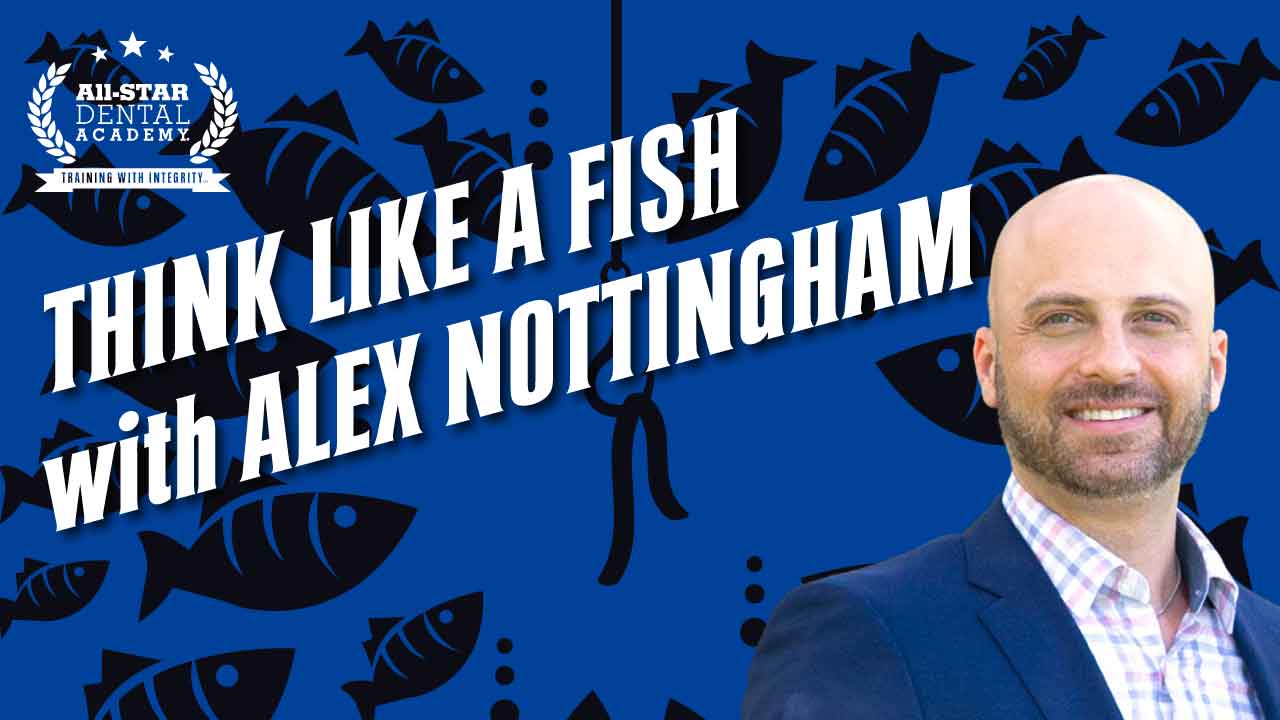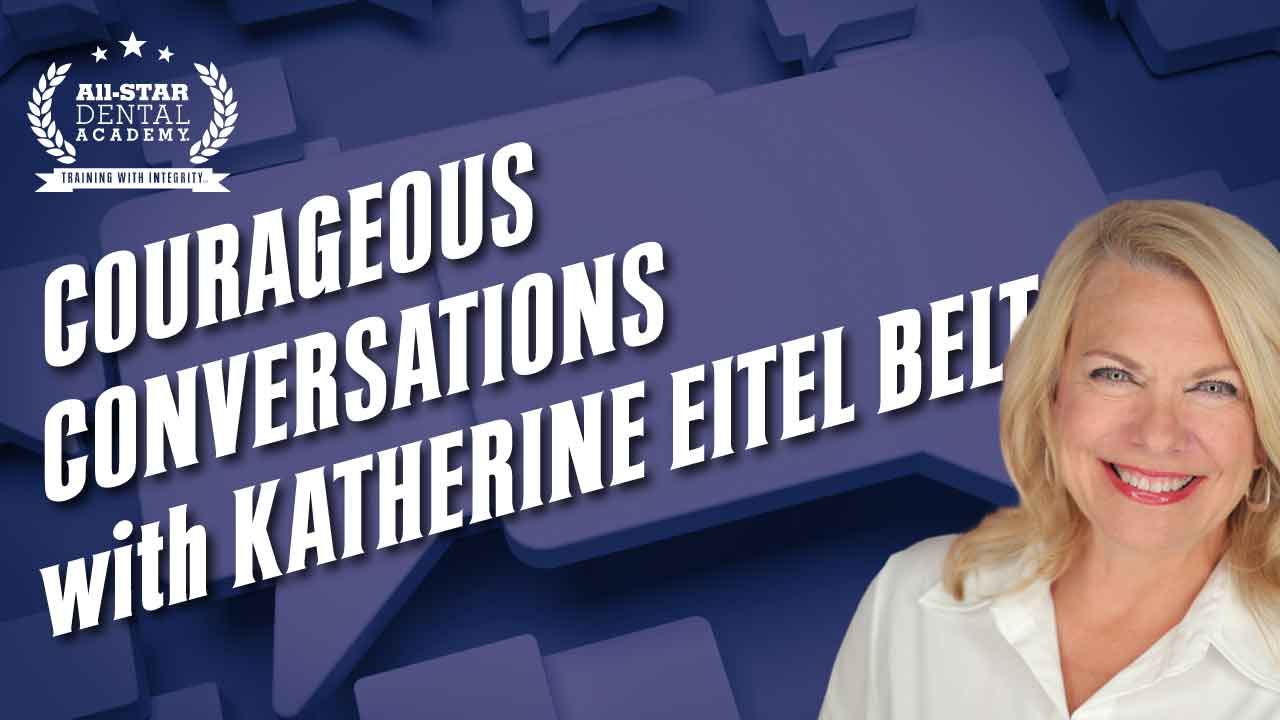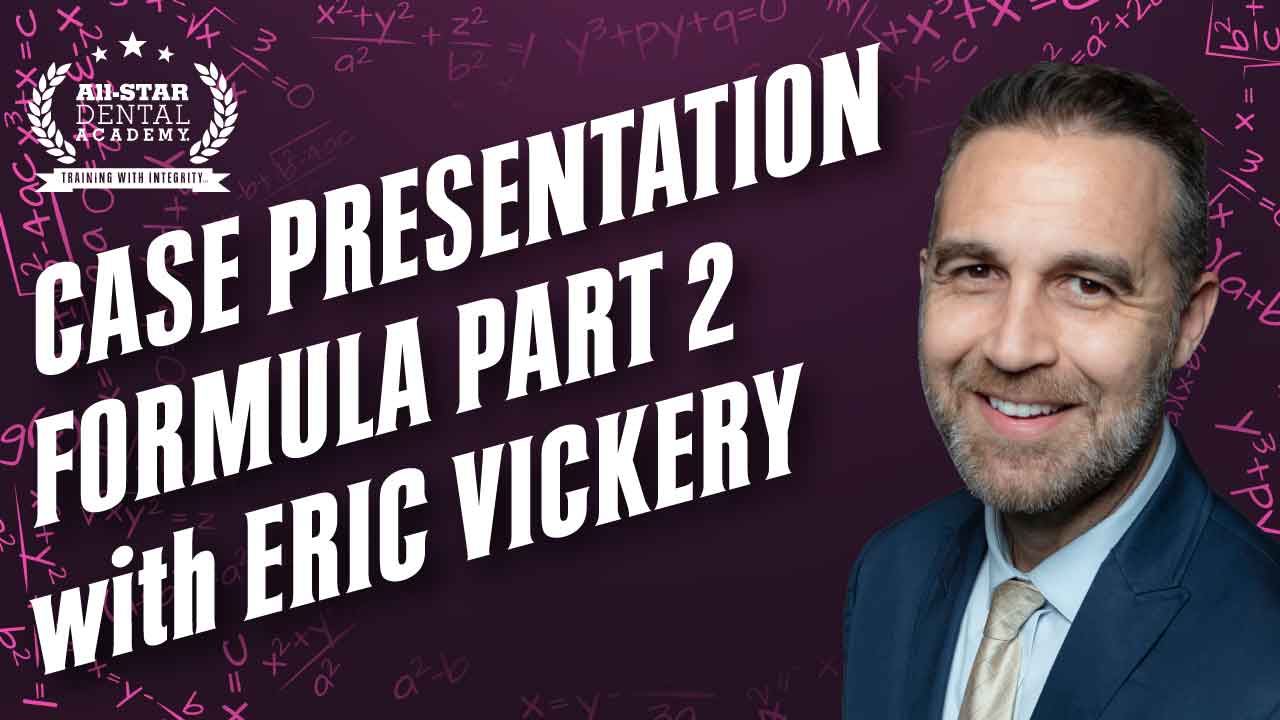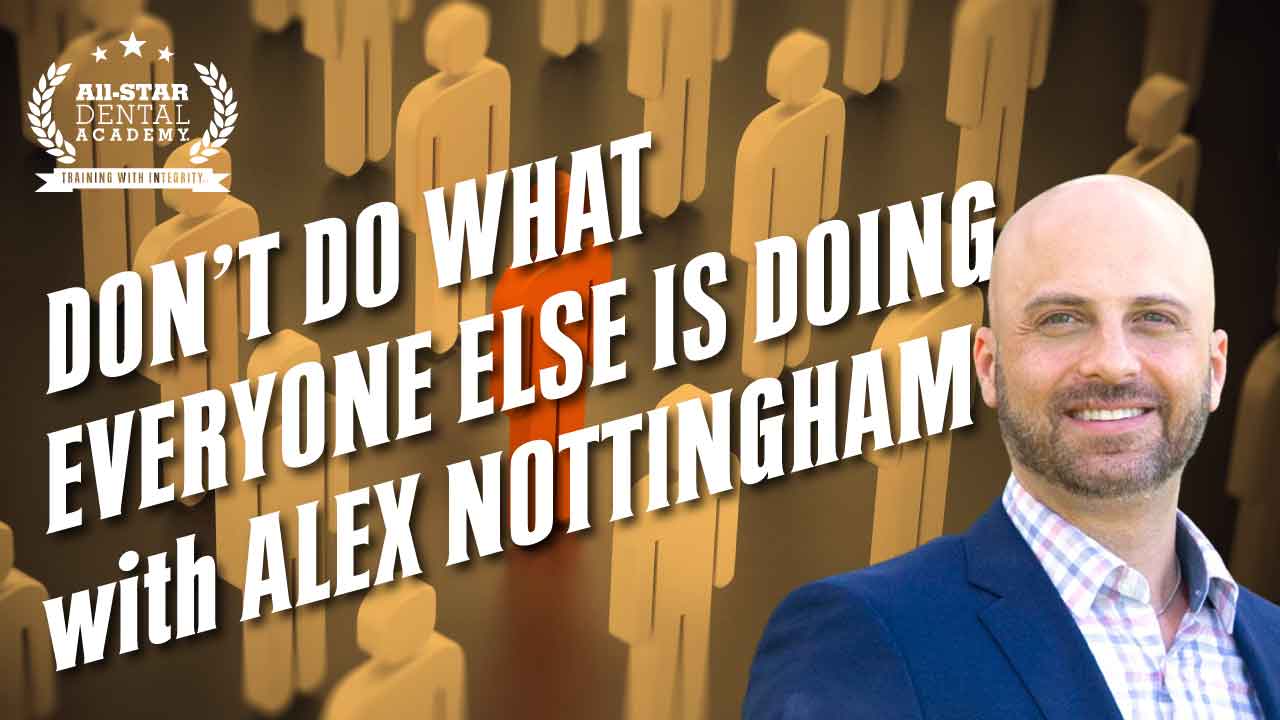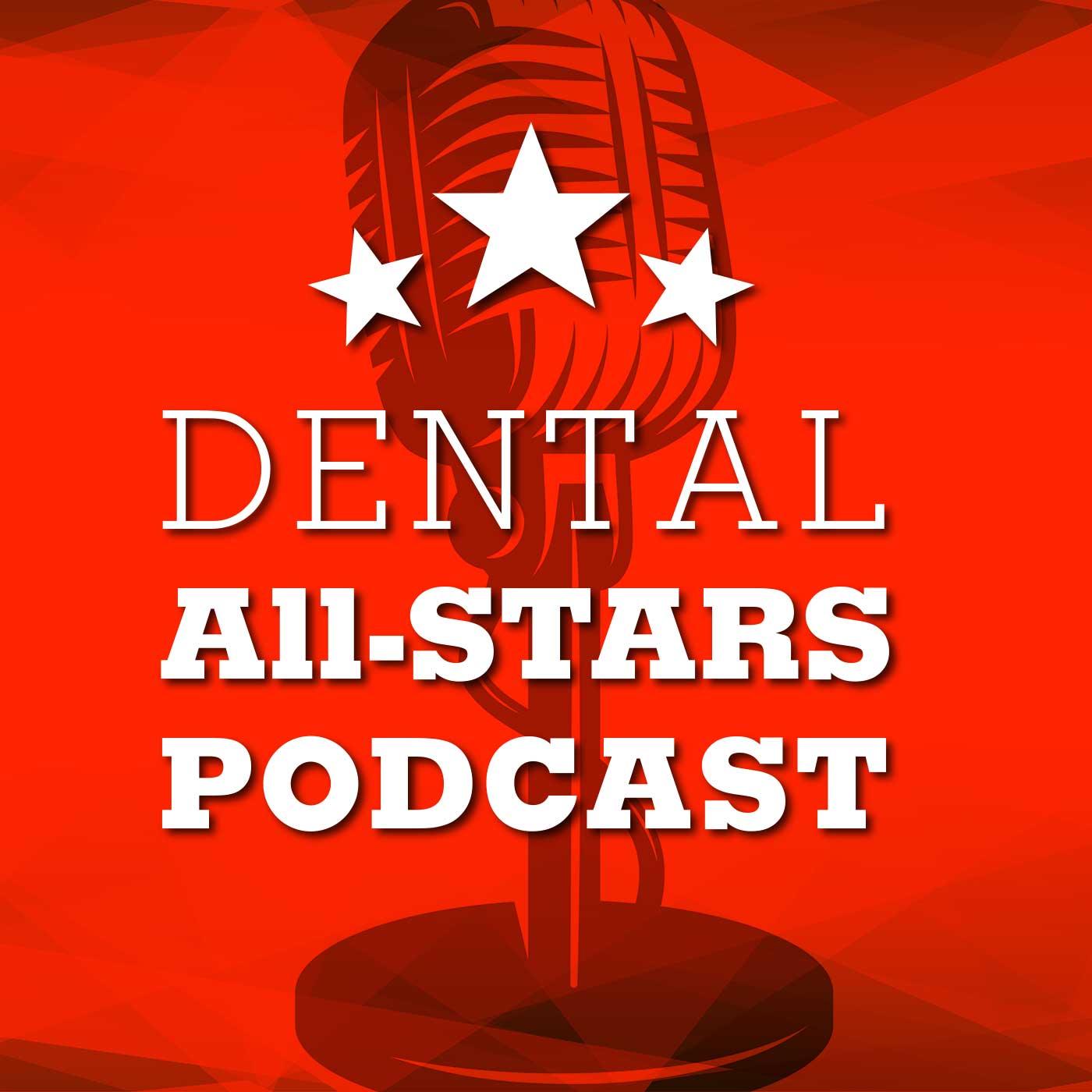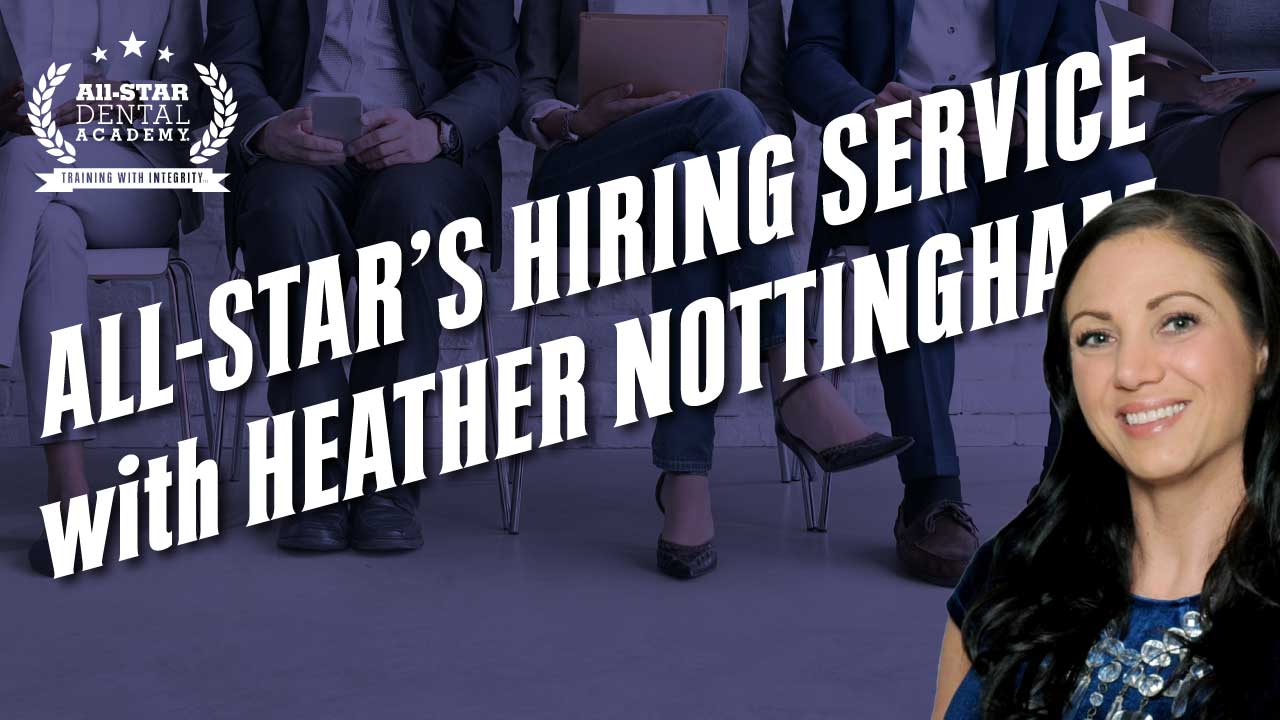Dental All-Stars explores tech for productivity. Dr. Lorne Lavine advocates automation, enhanced communication, and human touch alongside technology.
Resources:
- Request a Security Audit
- Security Predictor Checklist
- All-Star Live Dental Training Events
- Dental Practice Growth Webinar
About Dr. Lorne Lavine
Dr. Lavine is the Digital Dentist. A former periodontist turned cybersecurity, IT, and HIPPA expert for dental offices, Dr. Lavine lectures and educates globally to keep dentistry safe from all the various cyber threats.
About Alex Nottingham, JD, MBA
Alex is the CEO and Founder of All-Star Dental Academy®. He is a former Tony Robbins top coach and consultant, having worked with companies upwards of $100 million. His passion is to help others create personal wealth and make a positive impact on the people around them. Alex received his Juris Doctor (JD) and Master of Business Administration (MBA) from Florida International University.
Episode Transcript
Transcript performed by A.I. Please excuse the typos.
00:01
This is Dental All-Stars, where we bring you the best in dentistry on marketing, management, and training. Here’s your host, Alex Nottingham. Welcome to Dental All-Stars. We’re talking about ways technology can boost productivity in your workplace, and this is part of our, what is it, Tech Talk series, and our guest is Dr. Loren Levine, the digital dentist. Welcome, Loren. Thanks, Alex.
00:27
It’s a pleasure to be here and looking forward to our brief conversation. Yes, I’m all about productivity. I love life hacks, work hacks, and I thought that you’re the technology guy. Tell me a little bit about technology and how we can use it to boost our productivity in the workplace. So the approach that I take with it is that most practices know that there are certain things that they can do to boost their productivity.
00:54
that they need to do to improve the bottom line. It might be getting people into the re-care system, it might be marketing, it might be, when we talked about social media in a previous podcast, all things that can improve the bottom line. And when we talk with office managers, what we hear from them is that the biggest challenge for them is that they just don’t have the time. They’re so busy with all the other mundane crap.
01:22
that office managers and dental office staff have to deal with on a daily basis, that they’re just overwhelmed. And that takes up so much time. So the approach when we talk with an office about technology is other things that we can do to make your life easier, the things that you can and should be doing that will minimize the time spent with non-productive work so that you can then focus on things that are really gonna help.
01:52
the bottom line. The number one thing that I think technology can do is it just automates all those repetitive tasks. All the things that typically take a long time, whether it’s sending out emails or dealing with insurance or all the things that the dental office staff have to deal with on a daily basis. It’s just these routine, daily, repetitive tasks that if we can free up that time, that they can focus on more.
02:19
strategic, creative aspects of the practice, that’s gonna be really beneficial. Another area where we’ve seen technology has really taken off is just communication, both within the office and outside of the office. Now you’ve got things like email and instant messaging and video conferencing and real-time communication, real-time collaboration, so that team members can be in communication with each other.
02:46
You can be communication with your patients, you know, if there’s a opening in the schedule, if you need to remind them about taking some type of medication. But you know, that also, you know, when you have that enhanced communication, you find that you can just make decisions faster, you can solve problems a lot better as well. A third area, which we’ve talked about, I think in one of the previous podcasts as well, is this whole move to cloud computing. Now I don’t tend to,
03:16
put as much emphasis in the cloud. I think people tend to talk about cloud as is some mysterious type of thing that, it’s way too complicated for us mere mortals to figure out. In my mind, the real definition of cloud is somebody else’s server. That’s really what it is. But when you are taking the data that’s typically just in your office and now providing easy access to data no matter where you are, no matter where your staff are,
03:45
As long as you’ve got internet connection, that gives you a lot more flexibility, a lot more remote work capabilities. So I think that’s a huge aspect of technology. A lot of offices are using project management software that can help them organize tasks. It doesn’t have to be anything fancy. I mean, you can use Outlook or whatever, but you use it either to organize tasks or set deadlines, track your progress, just make sure whatever the projects are that you’re working on, that you’re staying.
04:15
on schedule. A lot of practices are using technology we call it KPI software, key performance indicators. We use like big data analytics where you can analyze large sets of information with tools that you can just get insights about how profitable procedures are and if your marketing is working. A lot of practice management software programs in my experience don’t have that type of analytics built into their software.
04:42
So technology can help with that. You can now document everything. Everything is now in electronic health record. It’s all there on the computer system. In the past, you’re going through paper charts and trying to find information or scan DOBs, but now everything, you’re just eliminating or at least reducing the amount of paper so you can get to documents a lot quicker. You’re just storing it a lot easier. It’s more organized.
05:11
I’m trying to think other things, mobile. Mobile’s taking off. Now people have mobile devices everywhere and you have apps that can allow you and your staff to stay connected when you’re on the go, communicating with patients. Another one would be AI. We did that in a previous podcast as well. AI is just a huge part. It does some of the data analysts that we talked about, supporting your patients, predictive.
05:39
procedures, you know, it just saves times, it reduces errors. You know, one of the things that we recommend for all of our clients is they do some type of ongoing staff training. Certainly from our standpoint, it would be more training specifically about things like HIPAA training on cybersecurity. I’m sure you’d train them, of course, on many different aspects of their practice. But a lot of that stuff is now e-learning where they can go online and take.
06:07
courses and learn how to do that stuff. It’s recorded. They can have interactive sessions with it. Then a final thing would be just like I call my collaborative tools. We talked about project management, but whether people can edit documents at the same time, you can have virtual whiteboards. It just makes it easier for everyone to communicate with each other, stay in touch, to make sure everyone’s on the same page. So that’s just like.
06:33
nine, 10 things off the top of my head that, here’s where I just see technology being such a huge booster to productivity and practices, because it just frees them up to do so many other things that are really important for their practice.
06:48
You know what I marveled at a bit, I was looking at our training course again, and we teach phone skills, scheduling, practice management. And what I noticed, well, two things. One, we were doing online training before it was cool, way before COVID. We’re talking over 10 years ago. And they’re also in bite sized pieces, they’re short. And the interesting thing about that is, a lot of social media now is about bite size, you know, it’s getting shorter and shorter. Our as we try to be within, I don’t know,
07:18
handful of minutes, right? Maximum 10. But, you know, when it comes to TikTok and shorts and all that, you got to be under a minute. But the point is, it’s, it’s, uh, uh, I do this is a Marvel interesting how, where we are now. And I blame it all on my, like, maybe I don’t want to say I have ADD, but my wife thinks I do. Right. I just get to the point, right? Let’s get it, get it right to it. Cause it’s like, Oh, something else, you know? So that was just, I think, uh, uh, I would like to say that I had this
07:47
vision of it. If I did, I would have invested in all these companies and I wouldn’t be here. I’d still be here talking to you maybe in different capacity, but who knows what it might be, right? Keeps you going with respect to that. So yeah, you were mentioning cloud, but you mentioned like, I think what’s great is even the productivity tools, Google Docs and so on that you can do with live editing. Whereas before you had to save documents locally. You have, you mentioned other productivity tools.
08:17
that everything and everything’s on your phone. It’s all synced up, which is so nice. Your calendar, your email, your tasks, okay. Ways of collaborating you talked about with the entire team as well. And plus, so many of the practice management systems and they have a lot of technology to help become more productive. Right, they’re getting a lot better. And the other thing is in terms of marketing.
08:45
And also patient communication, I would say, is a tool as well for productivity, right? Automatic texting, emailing, and so on. But here’s a caution with all these productivity tools that sometimes we use, because the topic today is about using technology to be more productive. But one of the concerns is that we get so reliant on the technology, we forget the human component. And I think that’s very important.
09:15
Yeah, I agree. And I think there’s other concerns as well. Certainly you’d mentioned the fact that we want ideally to be able to use the features that are built into our practice management software because it’s more integrated, it’s easier, you’re probably already paying for it. The reality is that to cover all the bases that we talked about, you’re oftentimes looking at three, four, five different third party programs, all of them with monthly fees of some sorts. So…
09:44
It starts to add up financially. You’ve got to learn multiple different programs as well. But yeah, it’s just, you have to be careful of that. Technology for technology’s sake is not ideal. I remember back in the days, and it’s not as popular nowadays, but maybe 15, 20 years ago, one of the big things in dentistry was patient education software. And the way that offices would sometime use it,
10:13
is that they want to explain the procedure to the patient. So they would bring them into either do it chair side or bring them into a consult room, put on a little video and say, go ahead and watch this and I’ll come back in a few minutes and we’ll go over it. And I would say to them, no, no, no, no, that’s the worst thing you can do. They’re not there to buy the procedure. They’re there to buy you. Use the software as a tool that you can show them while you’re sitting there with them, talking with them, explaining them. You have to have that human touch.
10:43
Now, AI has gotten to the point where there probably are some times where you wouldn’t necessarily know. It’s not like a lot of the phone-based bot system where you know that you’re in bot hell and you’re definitely not talking with the real person. But people want to have that human touch. That’s the biggest complaint I think most consumers have is when they wanna get support, they’re just talking to bots. They’re talking to, they can’t even get through.
11:09
the phone tree system to get a live person, let alone someone that can help them. So that is, I agree with you that, you know, you got it, you want to use it, but you got to make sure you’re using it properly and that it improves the communication, not turns people off and just, you know, make some think that you guys are just robots. Exactly. Yeah. And I think there’s also productivity tools in terms of optimizing your health.
11:37
tracking your health, all the trackers and the systems and so on. And I think you hit the nail on the head when you said, these are all great to do, but don’t do the technology just for the sake of the technology. And don’t also use the technology as a excuse. And this is very important. A lot of dentists, you all are more engineer-like. You rather do tasks than deal with people, most of you. And so,
12:04
Sometimes it’s like, wow, I can do all this. It’s technology. I can email and text them. I never got to deal with them. I, I would just want to just do the clinical stuff. They show up in my chair and I start probing. I say hello, whatever. And you go and you pay. But I think that we can get a complacent and we can avoid working on the emotional intelligence, working on the human skills. That is so critical. People, like you mentioned, they’re buying you. Uh, not.
12:33
necessarily the product. Yes, they want the result, but they’re saying, you’re gonna get me to the promised land. You’re gonna do the work and make it beautiful and take care of me. I’m safe in your hands. Not just, it’s got me a veneer, right? Yeah. In that respect. So that makes a lot of sense. What are some productivity tools that you use yourself? Oh, that’s a good question. It’s, we do a lot of the stuff that I talked about. We do analytics. We…
13:02
Um, you know, the challenge that I have with my business is that, and I didn’t do this through the smart way with my business, because what I wanted to eventually do is to have a business that I could eventually sell. Um, and I have some type of exit strategy and the way that I thought I should go about doing that is by promoting myself and, you know, people.
13:24
that know who I am because I’ve been lecturing for 20 years. I have a regular column in DPR. I do all my webinars. I have all my email blasts. It’s all about me. It’s got my face on it. And even though I’ve got a great team that honestly handles 95% of what we do, people, at least when they first come into our business, they wanna talk with me. And if there’s a problem, they wanna talk with me. And it also means that if I ever go to sell it, it’s like, well,
13:54
Where do you think you’re going, Lauren? This business doesn’t have much value unless you’re part of it. So, we want you on board for another five, 10 years. So, I haven’t been the smartest about that. But we do everything. We’re cloud-based for a lot of our stuff. Our QuickBooks is cloud-laced. All of our, we have what’s called a Q system, which has been unbelievably productive for us, where when people email us or call in,
14:21
It automatically goes, it comes in as an email attachment. It goes into a queue system that all of my technicians have access to that at any given time. So we can see, you know, who’s waiting for a callback, who’s sent in an email request, all my employees, we don’t have to assign it to individual people. They all have the queue at their fingertips. We’re using Google Docs for things like that, for sharing stuff. We have what’s called a KB, a knowledge base that we set up.
14:48
We see a lot of these problems that are somewhat unique or ones that took us a long time to resolve and only one guy figured it out or was working on it, but then we’ll create an online knowledge-based article so that the next time it happens, one of my texts can go on there and see what the last person did. That’s a great idea. Yeah, so we need stuff like that. A lot of dentists, well, I think a lot of dentists listening, they could apply that.
15:15
I don’t know if they’re going to apply tickets. I like the ticketing thing. I was just talking to Heather about that today. She was like, whenever somebody calls, we’re going to make sure that there’s a ticket right away, just in case, because we can’t trust that it doesn’t get there. But there’s this concept of knowledge base, which is critical in terms of both the onboarding process, getting people trained up to speed, but also if something comes up, go to the knowledge base. Now, you’re not going to document everything, but you’re going to document
15:45
what are the major things that keep happening? And so you should have exactly how you would like the room to be set up, how the handoff should happen. Now, a lot of systems we give you at All-Star Dental Academy, we teach you, you can then replicate some of those in your own words and put them into your systems. This is how we follow it, right? So like, for example, we do a call grade and in the call grade it says, you messed up here. So,
16:14
and we do it nicely, go to unit module 7.2 and take a look at the transition statement. You’ve got to work on that, see that process. When something fails in the office, oh, go to SOP chapter 3, check this module, and that’s where we talk about that process. So when somebody says, Doc, I don’t know how to do it, yes, you do. It’s in there. So many dentists say, I have to keep repeating myself.
16:43
over and over again. And when I say, did you write it down somewhere? Somewhere. Where is it? I don’t know. Document somewhere. Is it where everybody can access it? And you can have people amend it and so on. There’s some really great productivity tools that will even, we’ve used one in the past called Guru, that it will let you know when a card is expired, it needs to be looked at again. Right now we’re using.
17:11
that we’re using Basecamp right now, which is a nice tool that has, you have documents, you have tasks, you have processes, you can break it up into department and everybody can interact, they can comment on it. So there’s this collaborative method of efficiency of training and productivity. Right, that’s kind of the McDonald’s mindset, that you have processes and systems in place, that you can plug any person into that.
17:37
And as long as they’ve got access to the manual, to know what to do, that they can handle it. I have a guy in my business who does just backups. That’s all he does 24, well not 24-7, but we have so many people on backup and it’s such a big deal for us. But he’s not available every day. So I have to have other people that know how to restore a backup if he’s out, that know how to deal with the problems that we see on a daily basis. So…
18:05
That’s why we set up our knowledge base is that anybody can read through that and say, okay, here’s a, and we do it like, you know, we go into detail. We like screenshots and everything. And you just got to follow the steps. It’s real easy. Um, but if you haven’t done it before, you know, you, you need someone to kind of hold your hand. Well, if you look at all, Heather was shocked when she came into dentistry. You know, I, I took her from Bloomingdale’s and she was a manager at theory and Kate Spade.
18:32
high-end retail and I brought her into my dad’s office. As part of the story, many of you have heard it. Some of you who are new may not have. That’s how I kind of got into dentistry. And she was shocked at my father’s office when we took it over. Like there was no onboarding process. When you work for Bloomies, everything’s laid out. You know exactly what to do and ramp up and every process is documented. That’s what these Fortune 500s do. And…
19:02
There’s a reason they do that. So that’s very important. I’d like to mention, Lauren, that you’re going to be at our event, our practice growth summit. So every year we do this, and typically it’s in May. You can go to allstardentalacademy.com slash events, or just go to allstardentalacademy.com. Click the link events, make it very easy. And we have the growth summit. And Dr. Lauren Levine is going to be there, going to have some great.
19:29
And the whole point of every year we do the Grow Summit, and it’s all about personal and practice growth. And so whatever’s new, we’re going to talk about it. So from technology, we’re bringing Lauren in to tell us about what’s new in technology to help you grow your business personally, professionally for you and your entire team. It’s a lot of fun, a great event. You can learn more about that. I know many of your fans are watching or listening to us. So Lauren, fans, come on by and come to our Grow Summit and see.
20:00
Lauren Levine there. So that’s great. Now, again, we do these podcasts, we try to do monthly, you and I, and we have our regulars. But for those that are new, tell us a little bit about what you do, the digital dentist, it should be obvious, but if it’s not, what do you do? And tell us about that special offer that you give our listeners. So I own a tech company called the digital dentist that focuses just on the dental industry.
20:28
probably know that I was a periodontist for 10 years, which I was not a huge fan of. I found out early on that I like to feel if I do the same thing over and over, I’m gonna get the same results over and over, which anyone that treats periodontist patients know that that’s not true, that never happens. So we work with offices who need help with their technology decisions. Everything from computers and networking to…
20:54
cameras, digital x-rays, cone beam, 3D scanners. From a hardware standpoint, we can get everything at a discount. We install it, we set it all up. But where the bulk of our business is, is on the after sale services. Most dentists just don’t have the time or the knowledge to get their office HIPAA compliant and to do best practices for cybersecurity. So we’re gonna make sure that you don’t get a ransomware virus.
21:24
we are gonna make sure that you’re meeting within reason all the HIPAA rules and regulations, that you’re backing up your data and encrypting and protecting and securing what I think is the most critical thing in your practice, which is that patient information. So we’re full service in the past. And to this day, we still typically will charge for the thing that we think is the most critical. Any dentist knows that it’s really hard to treatment plan if you don’t diagnose first.
21:51
What we are offering for your listeners is a free diagnostic workup. We call it a tech audit, security audit. Doesn’t take long, maybe 30, 40 minutes where we’ll hop onto your network with your permission. You can watch what we’re doing. We just gather data. We wanna see what you’re running for hardware, software, what you’ve done in the past as far as how you’re backing up, how you’re emailing other offices and patients. Have you done a risk assessment? Do you have insurance?
22:18
And once we gather that information, I would sit down with you, me personally, and go over the findings, put together more or less a treatment plan of here’s what I recommend, here’s the order you should do it in, here are the options, here’s what everything costs. And then it’s up to you to decide how you want to proceed. My approach is anyone that knows me knows I’m not hard sell, put a gun to your head. You know, I’m going to give you choices and let you know what I recommend, what most of our clients are doing.
22:44
At the end of the day, it’s your practice, it’s your money. You can decide, you know, what’s gonna be, to me, the bottom line is what’s gonna allow you to sleep well at night, knowing that you’ve covered your bases and that you’re doing everything within reason to protect and secure that information. And for every person, that’s different. So whatever it takes to get there, we can help you get there.
23:06
Well, I appreciate. I was just kind of recollecting, thinking back over the 10 years, the very beginning you were interviewing you and that technology wasn’t as great as it was today. Right. So it’s really improved. So it’s nice continuing the tech tech talk, even back then we had this idea. So it’s great. Continue to do this. Thank you for being on the on the show. Remember, everyone to follow us on Apple podcast, Spotify, YouTube, get episodes as they are released.
23:35
Share with your friends, and until next time, go out there and be an All-Star. We hope you enjoyed this episode of Dental All-Stars. Visit us online at allstardentalacademy.com.




